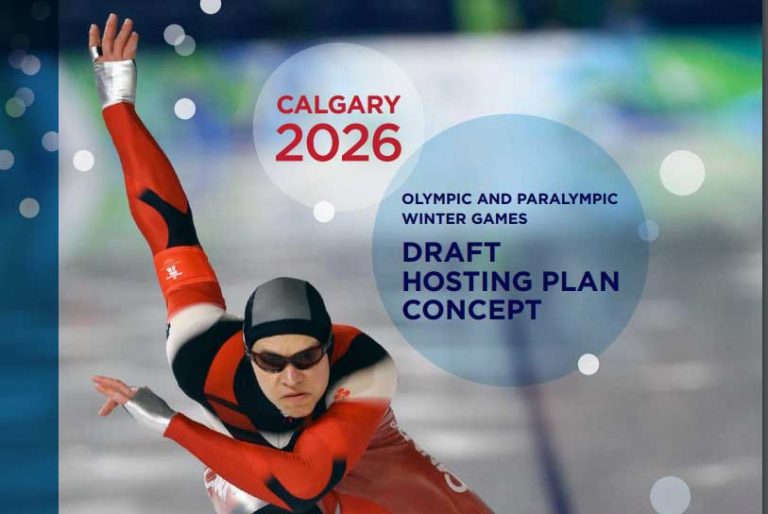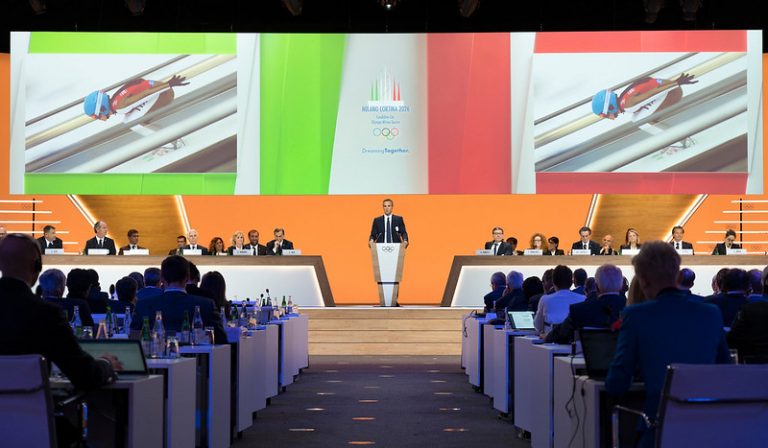The International Olympic Committee (IOC) Friday quietly launched an overhauled process that will be leveraged to elect a host city for the 2026 Olympic and Paralympic Winter Games.

The process, to begin immediately, will be followed in two parts starting with a Dialogue Stage where an “Interested City” can explore a possible bid, engage with the IOC and benefit from advice and expertise in order to fully understand the opportunities and challenges that exist. The IOC will also offer strategies that will help reduce the estimated costs of hosting the Games.
Following the initial one-year stage, the IOC Executive Board on the advice of an IOC Working Group will recommend cities that will be “invited” to the final stage of the process – and a decision will be ratified by the membership at the IOC Session in October 2018.
That will lead to a Candidature Stage where vetted cities will prepare detailed plans, share presentations and attend the final host city election at an IOC Session to be held in Milan in September 2019.
Cities in the Candidature Phase will deliver bid books, including detailed plans and guarantees, to the IOC by January 11, 2019 leading up to Evaluation Commission site visits in March or April.
Candidates will deliver a technical briefing to IOC Members and Winter Sports Federations in Lausanne in July 2019 before the final election in Milan.
The new process reduces the number of meetings and presentations that require bid city attendance, instead using video conferencing in some cases, and reduces the number of delegates permitted at meetings where the bids are invited. These measures are designed to help reduce the costs of bidding.
[box style=”0″]
Read the full Candidature Process document here
[/box]
The deadline to enter the process is March 31, 2018. The lead time has been reduced to 18-months, down from the typical two-year application-to-election duration.
Documents released Friday also reveal that the IOC financial contribution to the host city to help prepare for the Games is estimated at (USD) $925 million.
National Olympic Committees (NOC) were sent letters outlining the new rules and inviting cities across the globe to participate in the process. Four potential bids have already been recognized as “interested” and had delegates accredited to attend the IOC session in Lima earlier this month.
Sion in Switzerland has NOC approval but requires Federal backing in October in order to its bid move forward, as well as a general referendum win late next year. Innsbruck in Austria will also need to pass a referendum on October 15 in order to join the race. Calgary in Canada needs approval from its City Council after municipal elections are held October 16. Stockholm still needs to gain approval from various government entities, then win a referendum, if it hopes to pass to the candidature phase.
Cities that have previously expressed interest in bidding are 2022 runner-up Almaty in Kazakhstan, 1972 Winter Games host city Sapporo in Japan and Ezurum in Turkey. Milan’s Mayor teased delegates at the Lima Session that his city was exploring a bid for 2022 and the United States Olympic Committee (USOC) will consider a possible American bid in October now that Los Angeles has been awarded the 2028 Summer Games.

The overhauled process is in response to recent public push-back over hosting the Games due to the costs and risks, and the perceived corruption within the IOC. Four European cities out of six candidates dropped out of the 2022 Winter Games race and three-of-five cities took early exits out of the 2024 Summer Games bid.
With no certain candidates in the 2026 race thus far, the IOC must be proactive like never before and sell the values of hosting the Games to potential candidates, and not the other way around.
“Presenting a candidature for the Olympic Games is not tendering for a franchise and there is certainly no one-size-fits-all solution,” IOC President Thomas Bach said in his letter to the NOC’s.
“The candidature process is about making proposals and offering solutions that will deliver excellent Games without compromising the field of play for the athletes whilst also meeting the needs of the city and region to ensure the Games will leave a positive, long-term, sustainable legacy.
“There must be greater emphasis on the use of existing, temporary and demountable venues where no long-term legacy need exists or can be justified.
“We have just witnessed the historic election of two great cities, Paris and Los Angeles, as hosts of the Games of the XXXIII and XXXIV Olympiad. They were the first to fully benefit from Olympic Agenda 2020 and both cities fully embraced the reforms.
“This can be seen in the record number of existing and temporary facilities that are planned to be used and is something we have not seen in this dimension in the history of the Olympic Games. Such proposals are leading to significant cost reductions in the organisation of the Olympic Games.”


